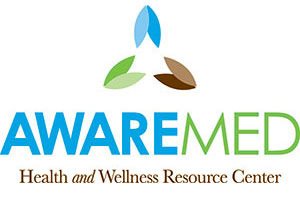Overflow Incontinence Treatment in Kingsport, TN

Overflow incontinence—also known as chronic urinary retention—happens when a person's bladder doesn't completely empty when using the bathroom. Loss of bladder control is a health problem that affects many women. There is no known cause for female urinary incontinence , but there are several risk factors, the most common of which include:
- Childbirth
- Urinary tract infections
- Menopause
- Prior pelvic surgeries
- Being overweight
Overflow incontinence occurs when you are unable to completely empty your bladder, which leads to overflow that leaks out unexpectedly. You may or may not sense that your bladder is full. The leakage is not the only problem with overflow incontinence because urine left in the bladder can become a breeding ground for bacteria. This can lead to repeated urinary tract infections.
Cause of Overflow Incontinence
Women with overflow incontinence experience two opposite problems. On the one hand, the bladder does not empty sufficiently, which is most often due to weak bladder muscles or a non-relaxing urethra. On the other hand, they can experience leakage when the bladder becomes so full that urine forces its way out. Women with overflow incontinence typically experience a diminished sensation to void and have a slow or delayed urinary stream.
There are several possible causes for this type of incontinence, the most common of which include the following:
- A full bladder that causes a urethra blockage.
- Prolapse of pelvic organs.
- Damage to the nerves that control the bladder, urethral sphincter or pelvic floor muscles.
- Diabetes , multiple sclerosis , stroke or Parkinson's Disease .
- Medications that can interfere with bladder function.
Diagnosis of Overflow Incontinence
If you have problems with overflow incontinence, it's important to speak with your doctor. He or she will perform a physical exam to look for signs of damage to the nerves that affect the bladder and rectum. Your doctor may also order a bladder stress test or urinalysis testing.
Your physician may recommend further urodynamic testing if he or she is considering surgery or if other treatments have failed. These specific tests provide a more advanced way to check bladder function. In general, these tests include the following:
- Cytometry: Tests that measure bladder pressure at different levels of fullness.
- Postvoid residual (PVR) measurements: This test measures the amount of urine that stays in your bladder after urination.
- X-rays or ultrasound: Imaging tests show changes in the position of the bladder and urethra during urination, coughing or straining.
Treatment of Overflow Incontinence
Urinary incontinence is not something that occurs normally with age. Most people who suffer from persistent overflow incontinence turn to their doctors for treatment. The best treatment depends on the cause of your incontinence, but treatment of overflow incontinence generally includes the following:
- Behavioral training: Several types of behavioral methods are used to treat urinary incontinence: bladder training, habit forming, biofeedback and pelvic muscle exercises.
- Lifestyle changes: Losing weight or avoiding certain triggers often helps to reduce or stop overflow incontinence leakage.
- Medications: Doctor-prescribed medications are often combined with other treatments to help reduce symptoms. These medicines work by blocking certain nerve impulses to the bladder, which relax the bladder muscle.
- Intermittent self-catheterization: With a physician's recommendation, this is a safe and effective method of completely emptying the bladder.
Request more information about overflow incontinence today. Call (423) 482-8711 or contact AWAREmed Health and Wellness Resource Center online.
AWAREmed Health and Wellness Resource Center
Address
1604 Lamons LaneSuite 202
Johnson City, TN 37604
(423) 482-8711
www.awaremed.com
Hours
Mon:
9:00 am - 5:00 pm
Tue:
9:00 am - 5:00 pm
Wed:
9:00 am - 5:00 pm
Thu:
9:00 am - 5:00 pm
Fri:
9:00 am - 5:00 pm

